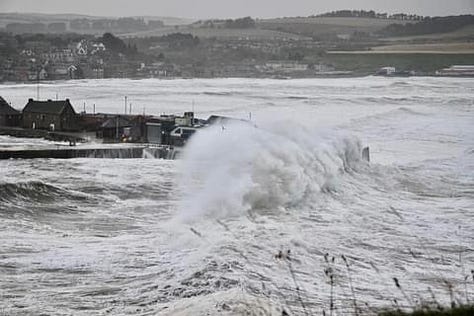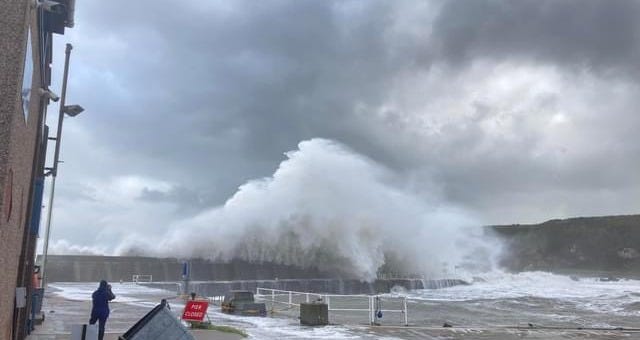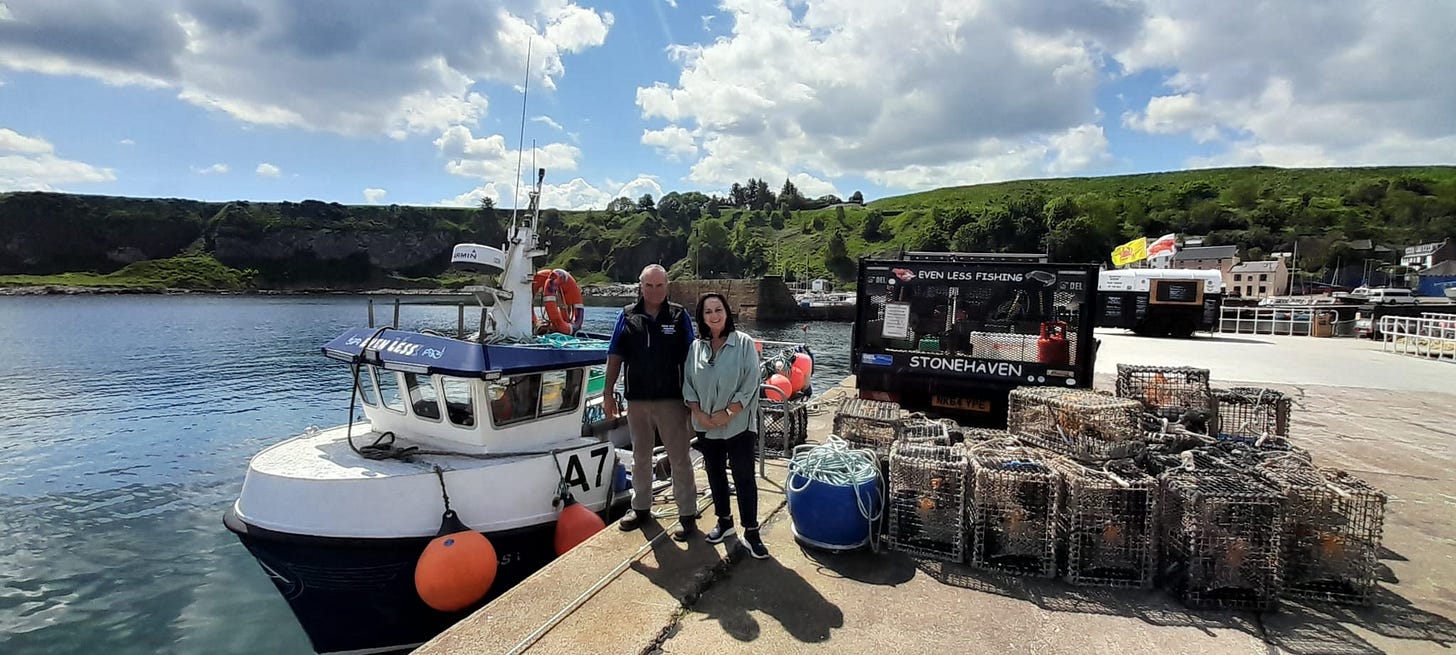The challenges an Aberdeenshire fisherman faces as storms become more frequent and severe
Wes Lewis, a commercial fisherman in Stonehaven, can’t see the UK fishing industry surviving many more of these storms.
Listen to Wes’ story:
This is the first of three Stonehaven stories from a recent trip to the east coast of Scotland. Wes Lewis has been fishing all his life. A commercial fisherman for 20 years, he used to fish for bass and pollock on the south coast of England, and for the past five years he’s been catching crab, lobster and mackerel in Stonehaven, Aberdeenshire. He and his wife Maria run a local business called Seafood Bothy. With the relentlessness and intensity of the storms that hit Aberdeenshire most years now, things are difficult for them: Wes struggles to get out, especially in the winter, and when he does, a lot of his gear gets destroyed and fish don’t turn up where they used to.
Listen on your device:
Apple Podcasts
Soundcloud
Spotify
Subscribe to automatically download new episodes!
“Every year as a fisherman, it’s a new ballgame. It’s evolving. Every time you go out, you write down your catches, and it changes. I looked at what I caught exactly this day last year, and I’m scratching my head at how we’re going to catch that tomorrow … if we get anywhere near, that’d be great, but at the moment we’re scratching our heads thinking where’s everything gone.”
“Even the boats in the inner harbour … were moving one and a half metres, and three sank this year in the harbour. We’re not talking small boats: a thirty foot boat having a wave land on it, and completely immersing it … the whole boat gone under water with a wave hitting it.”
“We’re putting gear into the water … and they end up in heaps. So all I did from October to November [last year] was pull out heaps of fifteen to twenty [lobster pots], which are then wrapped up in a ball, and then spend the whole of November and December untangling them. How does that affect the fishing industry: well, we can’t fish and we can’t work because all I’m doing is repairing gear from the climate change.”
“Where we used to have big rocks where we could hide a few lobster pots have disappeared. We don’t know where they’ve gone. We’re talking huge rocks, four to five metres in size.
We’re having to find different grounds, so I’m burning more fuel, putting more time in, to try to get the same results, for less money because the weather has changed and the fishing has changed … nature is adapting to it, and we just keep hammering away with the same methods for less rewards.”
Keep posted. We’ll email you when new episodes arrive:
Hear the Show!
Don't miss an episode! Subscribe to download the show to your device:
Apple Podcasts
Soundcloud
Spotify
Follow us
Show updates, additional content, and other insights:
Facebook
Twitter
Instagram
Bluesky
TikTok
Stories From Round Our Way. Everyday conversations with people impacted by climate change.

















